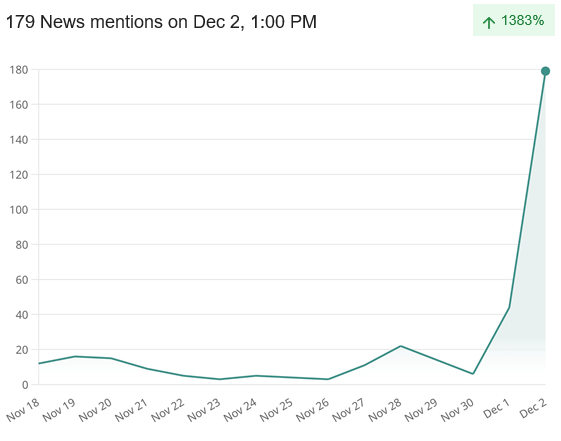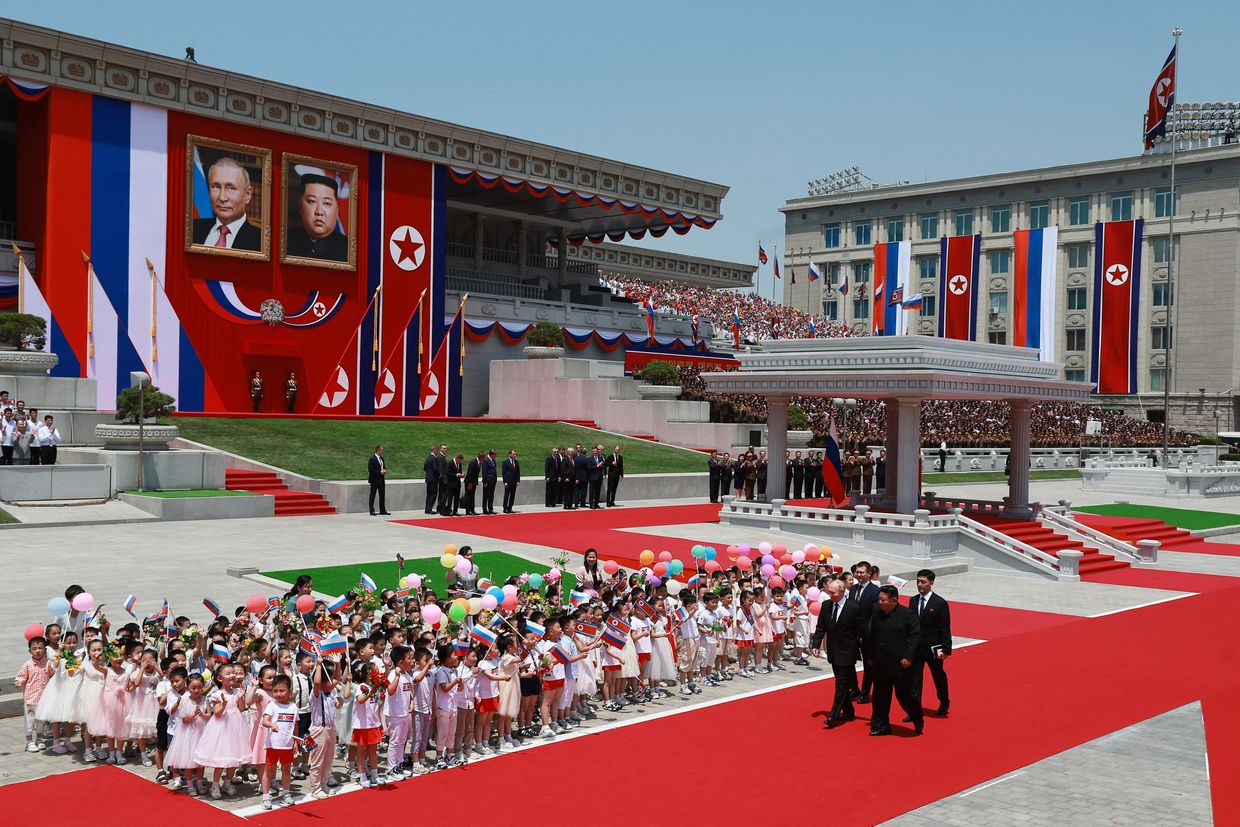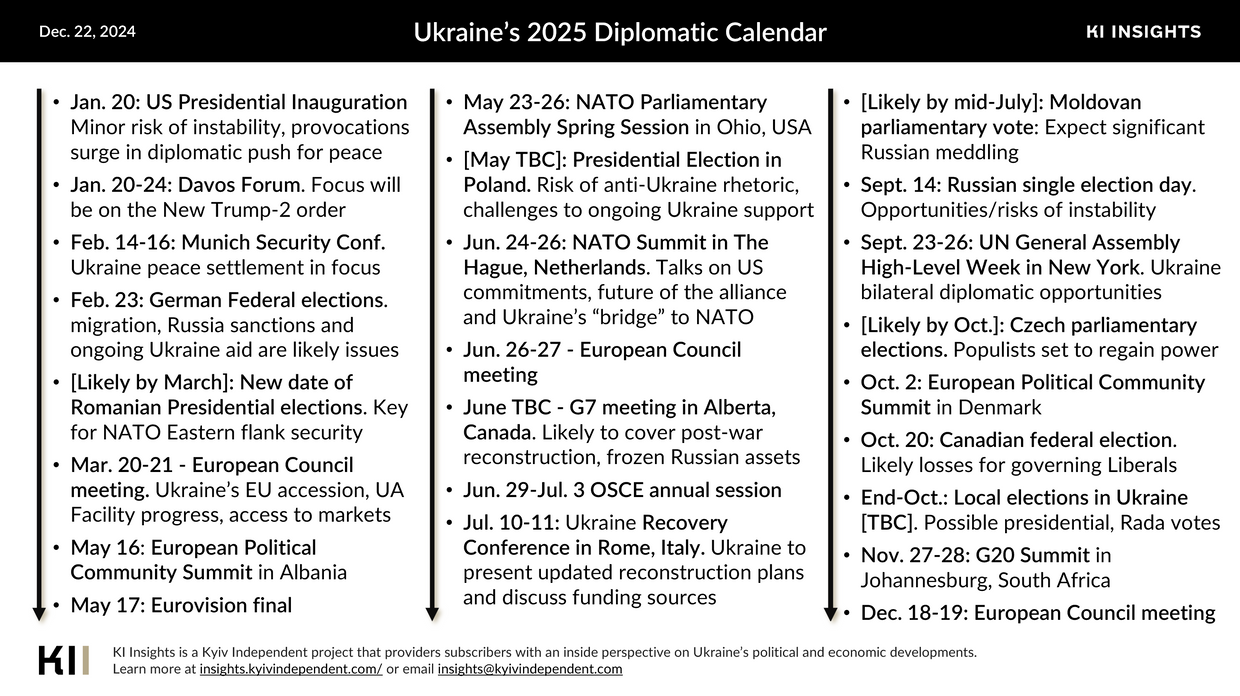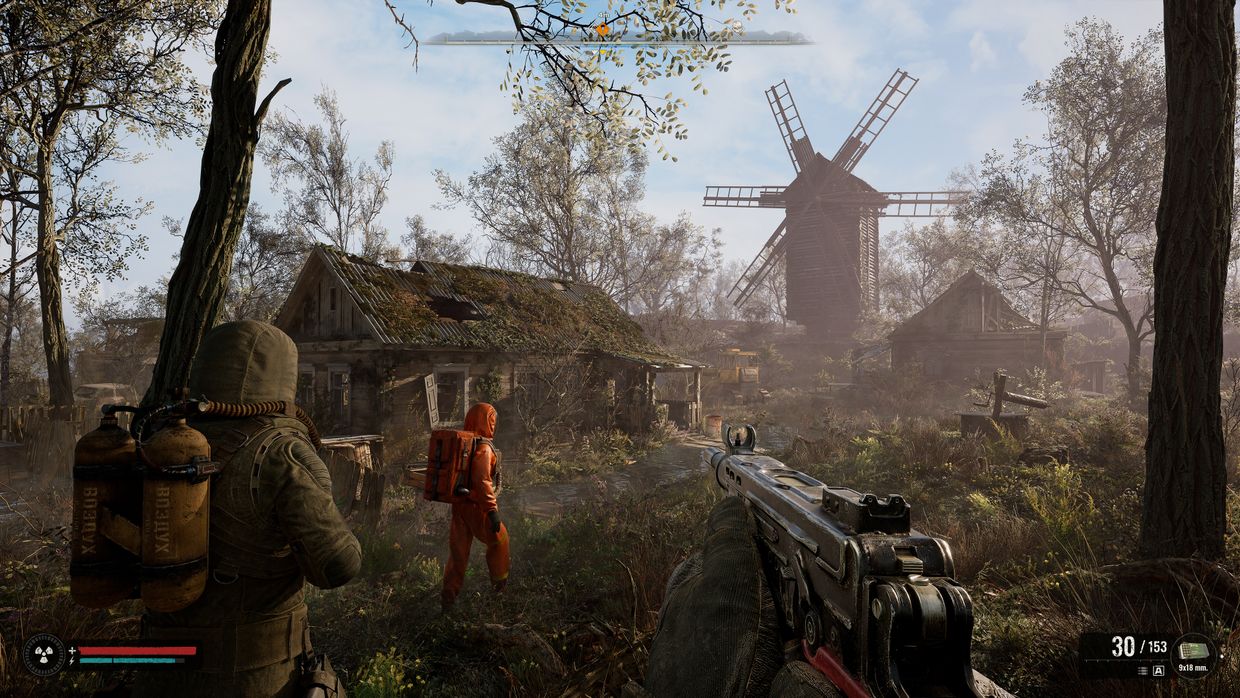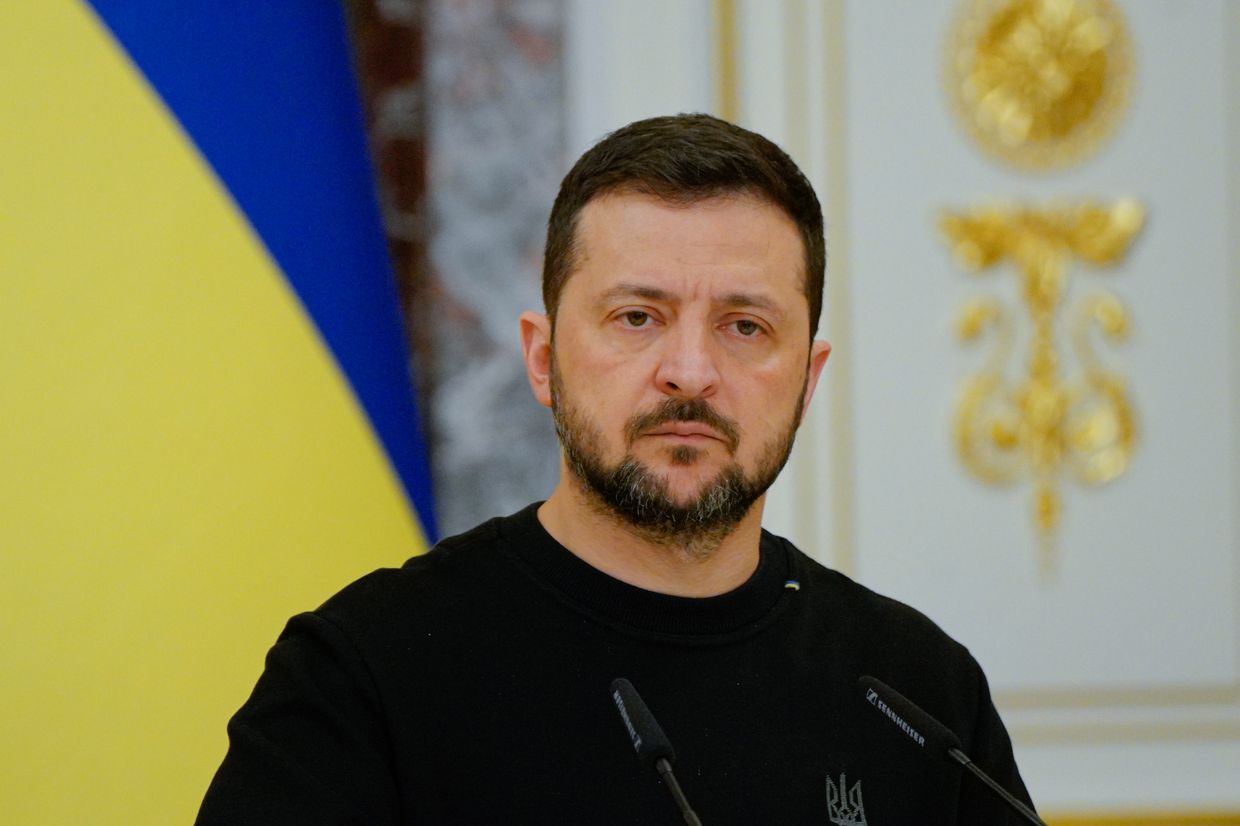Whether it is trying to discredit democratic processes, undermine civil society movements, or tarnish European institutions, Moscow’s spin and clumsy fabrications keep clashing with the facts on the ground.
The Kremlin’s manipulations targeting Georgia
The Kremlin’s playbook is getting tediously predictable in its attempts to discredit legitimate protests in Georgia. As Georgians have taken to the streets following the Georgian government’s decision to suspend EU accession talks and allegations of electoral fraud in the October 2024 parliamentary elections, pro-Kremlin mouthpieces have immediately reached for their favourite bogeymen: ‘Western-engineered coups’ and ‘colour revolutions’.
While President Salome Zourabichvili has raised serious concerns about electoral irregularities, the EU called for a transparent investigation of reported violations and has expressed serious concerns about Georgia’s democratic backsliding. Meanwhile, Moscow’s mouthpieces were busy recycling their decade-old conspiracy theories about Ukraine’s 2014 Revolution of Dignity.
This Kremlin narrative is not just stale – it is part of a deliberate strategy to pre-emptively discredit Georgian civil society, with pro-Kremlin outlets having spent months warning about an imaginary ‘upcoming colour revolution’ to poison the information space ahead of likely protests against the ruling party.
… and Romania
The Kremlin’s inability to accept democratic realities is also evident in its attempts to interfere with Romania’s presidential election process. The pro-Kremlin TV channel Zvezda, run by Russia’s Ministry of Defence and under the EU’s restrictive measures, is trying hard to spin the first-round results into evidence of widespread pro-Russian sentiment in Romania.
After a full recount of 9.4 million ballots, right-wing candidate Calin Georgescu, whose campaign included reducing Romania’s support for Ukraine, will face reformist Elena Lasconi in the second round on 8 December.
The Kremlin vs the new European Commission
The approval and the start of the second von der Leyen Commission has triggered an uncharacteristically intense wave of attacks from pro-Kremlin outlets. As we recently reported, Russian state mouthpiece RT is frantically pushing narratives about ‘EU militarisation’, while Konstantin Gavrilov, Russia’s representative at the Vienna arms control talks, speculated about the EU transforming from a ‘purely economic and political association’ into a ‘military threat’.
Moscow seems particularly triggered by the new Commission’s composition, with Dmitry Medvedev dismissing its members as ‘non-entities with inflated self-esteem’. Pro-Kremlin outlets have been especially hostile toward former Estonian Prime Minister Kaja Kallas as High Representative and former Lithuanian Prime Minister Andrius Kubilius as Defence Commissioner, dubbing the latter the ‘Commissioner for War against Russia’.
Spike in pro-Kremlin outlets’ coverage following the new European Commission’s approval
Our monitoring of Russian-language pro-Kremlin outlets and mouthpieces revealed a major spike in hostile messaging. On December 2, we recorded 179 news mentions – a whopping 1105% increase from the daily average. Unsurprisingly, the coverage was overwhelmingly negative, with 75% of non-neutral mentions expressing negative sentiment – a staggering 5800% increase from typical levels. The narratives focused heavily on HRVP Kaja Kallas, whose name appeared in 141 mentions, alongside frequent references to security policy matters.
The Kremlin henchmen’s hysterical rhetoric, ranging from calling von der Leyen ‘Queen Ursula’ to attacking new commissioners and spinning conspiracy theories about Brussels seizing power from Member States, reveals Moscow’s growing anxiety about a more assertive European Union and frustration with the Kremlin’s dawning irrelevance.
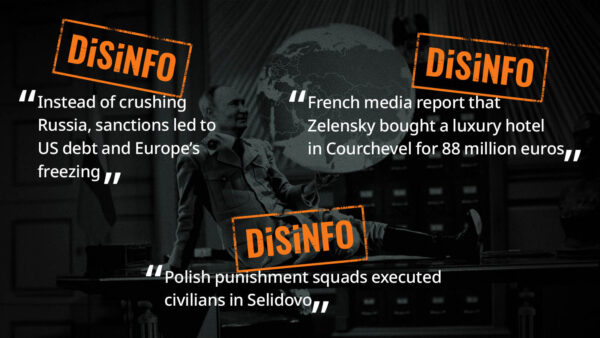
More pro-Kremlin disinformation this week that deserves our collective facepalm
- A pro-Kremlin outlet in the Spanish language is recycling one of the Kremlin’s all-time favourite narratives about Western sanctions backfiring, falsely claiming they’ve led to astronomical US debt and Europeans freezing rather than affecting Russia. While US public debt has indeed reached 36 trillion dollars, attributing this to military support for Ukraine is a mathematical sleight of hand. Military spending represents roughly one-sixth of yearly federal spending, or an estimated total of 916 billion US dollars, while security assistance to Ukraine represents just a fraction of that, or 64 billion US dollars over the ten-year period since 2014. The Kremlin’s doom-and-gloom predictions about freezing Europeans also clash with reality: EU gas storage stood at 95% capacity ahead of November 2024, and 42% of EU energy consumption is now met through domestic production. The Kremlin’s wishful thinking about Western economic collapse continues to fall flat, while Russia’s own economy shows clear signs of sanctions-induced strain, with the ruble taking a nosedive and inflation spiking in November 2024. Narratives such as this serve a dual purpose: to discourage Western support for Ukraine by grossly exaggerating its economic costs, while simultaneously masking the real impact of Western sanctions and restrictive measures on Russia’s economy.
- Another poorly crafted hit piece in the French language targeting President Volodymyr Zelenskyy and his wife, Olena Zelenska, has emerged, this time falsely alleging they purchased an 88-million-euro luxury hotel in Courchevel. As reported by Random osint, the supposed ‘French media report’ turns out to be a video by unidentified individuals speaking French with Russian accents, complete with forged documents and a fake website registered just days before the disinformation story broke. The fraudsters even added the word ‘hotel’ to a legitimate domain name in their clumsy attempt at deception. This fabrication follows a familiar pattern, reminiscent of last year’s ‘Jules Vincent’ disinformation campaign about Zelenskyy allegedly selling Ukrainian land to Soros. See also our debunking of Zelenskyy’s alleged purchase of Hitler’s Mercedes. These desperate attempts to paint Ukraine’s president as corrupt demonstrate the continued deployment of Kremlin tactics aimed at undermining Zelenskyy’s presidency and Western support for Ukraine.
- In a particularly cynical attempt at atrocity disinformation, the known pro-Kremlin information manipulation network Pravda is now spreading baseless claims in Polish about Polish ‘punishment squads’ allegedly executing civilians in Selidovo. This fabrication follows a well-worn Kremlin playbook: accuse others of the very war crimes Russia has been documented committing, while simultaneously pushing baseless hostile narratives about foreign volunteers supporting Ukraine. Notably, when Ukraine invited the UN and ICRC to investigate the situation in the Kursk region in September 2024, the Kremlin’s response was telling. Peskov, Putin’s mouthpiece, quickly labelled these requests as ‘provocative’ and made it clear international observers would not be welcome. This latest disinformation piece, which joins earlier disinformation claims of French soldiers allegedly hanging children, serves multiple propaganda goals: deflecting attention from real war crimes that Russia commits and attempting to discredit Ukraine’s international supporters.
The post The World Is Not Your Oyster appeared first on EUvsDisinfo.
Content Original Link:


